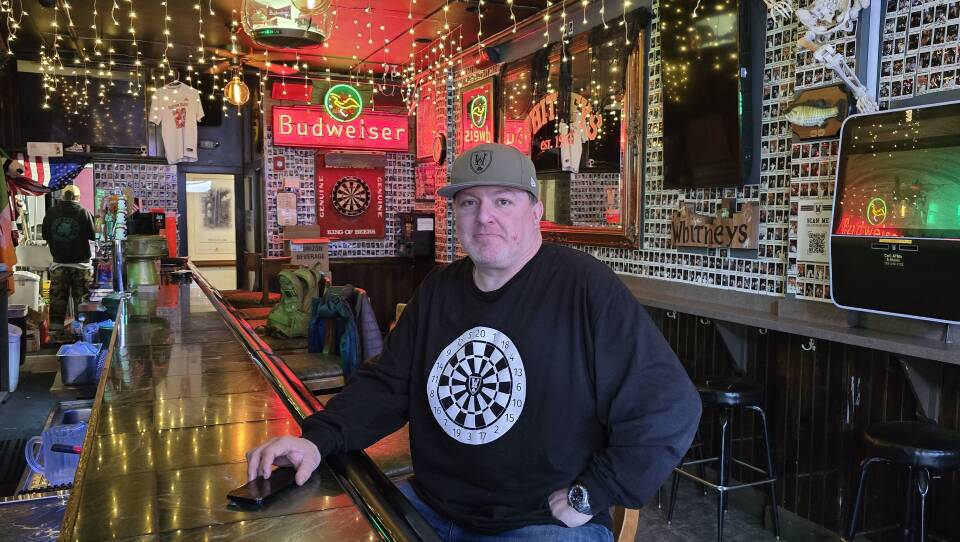In late December, Dan McGuire said goodbye to friends and longtime patrons of Whitneys of Harvard Square, and locked the doors for good.
Whitneys was one of the neighborhood’s oldest establishments, a mainstay on busy John F. Kennedy Street since 1953. McGuire was forced to close after losing an eviction battle with his landlord, billionaire Gerald Chan.
A spokesperson for Chan says McGuire owed some $44,000 in past due rent. But McGuire countered that he withheld rent following a dispute over upgrades to the building’s electricity system. He claims Chan wanted him out because his bar doesn’t fit Chan’s “profile.”
Chan owns about 13 properties in Harvard Square, making him second only to Harvard University when it comes to property ownership in the neighborhood, according to the Harvard Square Business Association. His holdings include 40 Bow St., which he restored and was honored in 2017 with a Cambridge Preservation Award. Chan’s properties also include the long-shuttered Harvard Square Theater, the empty Dickson Bros. hardware store and the restaurant once occupied by Upstairs on the Square, no longer open to the public.
Some community members worry the once-vibrant urban center filled with local shops is losing its character. The city has tried to step in to address the issues of vacant properties and intimidation tactics. Business owners and leaders say problems have accelerated with Chan’s real estate investments; his companies have purchased some $170 million in property since 2012, according to the Harvard Square Business Association.
McGuire said the neighborhood has turned into a “billionaire’s playground.”
“It’s almost like he wants this to be his square — and it is becoming his square,” he said.
Chan was not available to comment for this story. But Dan White, a manager for the real estate investment firm he owns, Mayhaw LLC, said changes in the square are simply a matter of dollars and cents.
“That is the nature of the business,’’ White said. “We want the square to be as vibrant as we can, and we do our best to make that happen.”
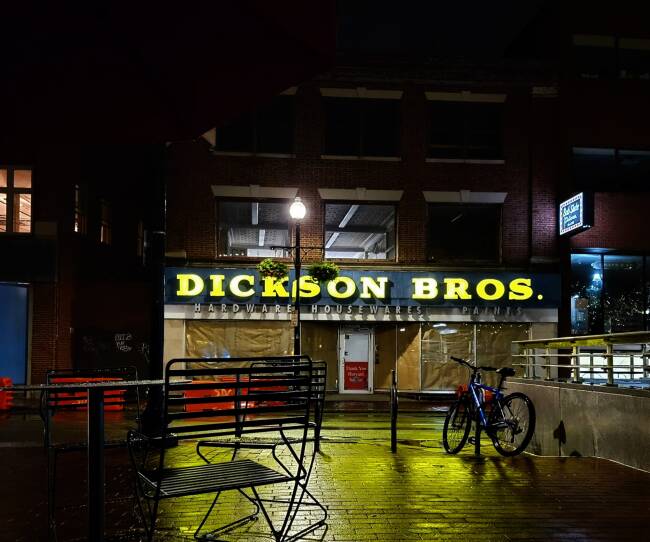
Gerald Chan is the son of a Hong Kong businessman whose name now is embedded in the title of the Harvard T.H. Chan School of Public Health after his family donated $350 million to the school.
Despite his well-known name, Gerald Chan has tried to stay out of the public light. Chan resides in Harvard Square and continues, with his family, to donate millions to science and medicine, among other causes. He went to school at the University of California in Los Angeles and later received a master of science and a doctor of science at the Harvard School of Public Health.
Chan 's personal wealth, combined with his brother Ronnie, was estimated to be upwards of $3 billion about a decade ago, according to Forbes Magazine.
Gerald Chan’s Harvard Square properties aren’t the only projects of his that have sat on ice. It took him nearly two decades to build Heckfield Place, a five-star hotel an hour outside of London. He purchased the 19th century estate in 2000, but it wasn’t until 2018 that its much-delayed grand opening was held.
Frustrations over a changing square
Denise Jillson, longtime executive director of the Harvard Square Business Association, says she’s well aware people mourn the Harvard Square of yesteryear. She said there’s been a notable loss of local and independent neighborhood businesses, replaced by banks and national chain stores. They include the beloved former Tasty Sandwich Shop, closed in 1997, which now has a CVS Pharmacy in its place.
There are economic and social factors for the changes, including the impact of the COVID-19 pandemic. High rents demanded by investor landlords have also driven some small merchants out of business. The iconic Anthropologie store on Brattle Street announced it’s closing its doors this month.
Jillson said business changes can be expected, but because of how many properties Chan owns, he should be more active.
“When he does work to a building, he does it very, very nicely,” she said pointing to the Chan-owned property on Bow Street. “But when he leaves it, he just leaves it.”
As an example, Jillson points to the Harvard Square Theatre, which Chan purchased from hotelier Richard Friedman in 2015 for $17.5 million, after it had already sat empty since 2012. But no visible changes have happened since. Walking past the desolate structure on any given day the irony is hard to miss. The words on the marquee above the fading red paint on the building read, “Onward and Upward We Go.” But Jillson says there has been no progress since Chan proposed a plan in 2019 for reopening the theater, which was eventually scrapped.
“It all just went silent. We remain hopeful, even though it’s several years later. But it’s not helpful to have that building fallow,’’ she said. “It’s problematic.”
Jillson says the building is literally falling apart.
“The facade is beginning to fall down, and the mural is beginning to deteriorate,” she said. “I don’t know what would motivate anybody to buy a building and leave it for ten years fallow when its impact is so enormous.’’
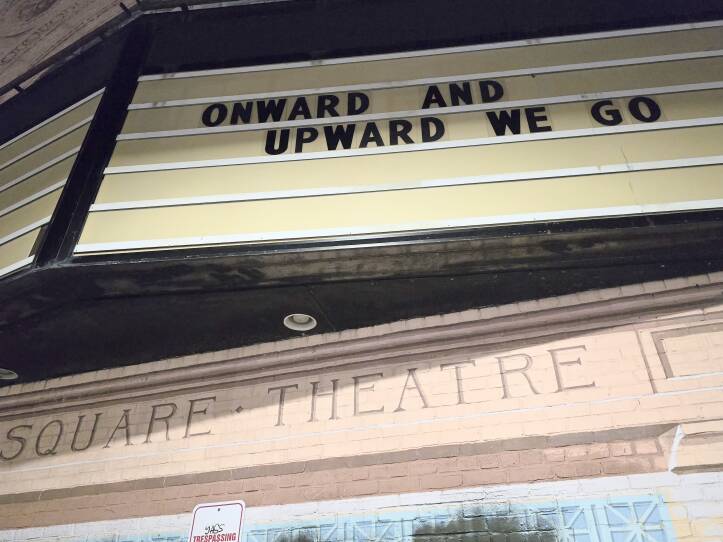
The Harvard Square Business Association estimates that there are 1,000 fewer people walking up and down Church Street every day because of the closed theater. Since its doors were locked, several key businesses on the street have gone bust: Starbucks, the Border Cafe, and Fire + Ice.
“Business is down across the board for everyone, from the liquor store to all the restaurants,’’ said Daniel Roughan, who owns Source restaurant across the street. “They’re down because there’s not enough traffic.”
Roughhan blames Chan for the stagnation.
“He prepared a nice presentation [in 2019] and had architects and designers and did a big press release and then never followed through on it,’’ he said.
White says directing anger at Gerald Chan is misplaced, because the theater isn’t in usable condition.
“You can’t just quickly activate or do a pop-up shop or do a food court or something like that,” he said. “Believe me, we’ve talked at length about trying to do anything with that property.”
He says Chan’s plans for the theater were sincere. But with fewer people interested in going to the movies since the pandemic, he’s reconsidering what to do with the space.
For years, Chan and the city have been arguing about plans for the property. That saga included a meeting that never came to fruition, and a threat by the city to take over the property by eminent domain.
In September 2022, Cambridge City Councilor Mark McGovern told GBH News in reference to the theater, “If it’s sitting, you know, even a year from now like it is today, then we will have to have some tough conversations about what we can do to push this.”
McGovern did not respond to multiple requests for comment for this story.
“The next steps would be that we think about what the legal opinions are and a plan, and not be talking about this in another 15 years,” said City Councilor Sumbul Siddiqui, a former Cambridge mayor.
Last month, the city council requested a legal opinion from the city solicitor to determine if the council can “levy a tax or fine on store fronts and commercial properties that remain vacant for more than two years.”
A decision is expected in February.
The bar owner vs. the billionaire
Dan McGuire grew up in Cambridgeport in what was then a working class section of the city. He said his experience with Chan, who he’s never actually met, was entirely different than interacting with the people he grew up around.
“Here I am, not a wealthy local kid, fighting a billionaire in court,” he told GBH News, as he wiped down the bar counter at Whitneys for the last time.
McGuire is convinced that Chan’s closing of one of the oldest establishments in Harvard Square boils down to class resentment.
Longtime customer Kevin Kelly agrees. He says he has held court at Whitneys for decades. It was where he would meet other folks like him who attended Harvard on scholarship.
“I’ve been coming here since 1985 after I got out of the Navy, and I don’t get how the owner of the building doesn’t believe that this represents what Harvard is about,’’ he said.
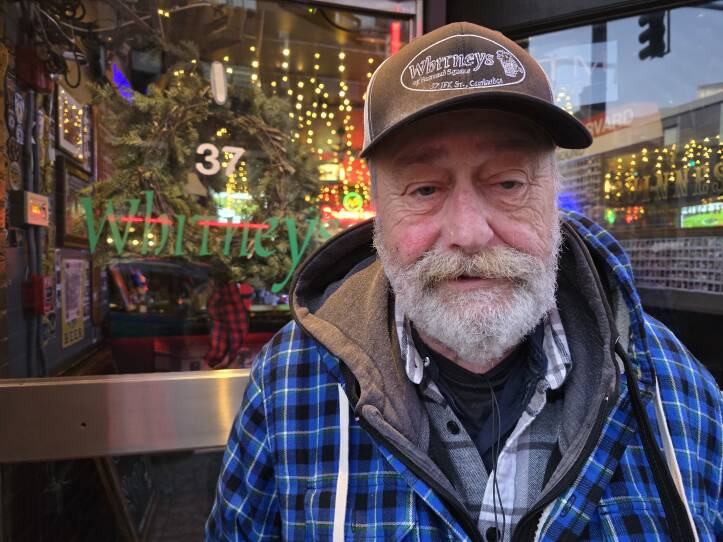
Kelly and regular customer Joe Rossi agree the bar brought all types of people together.
“You’ll see Harvard professors, Harvard students, people that are into grunge and rap, athletes, union workers, laborers, police officers, firemen, veterans,’’ said Rossi, a Massport employee.
After Whitneys was told to close, some customers called and emailed the landlord.
Mayhaw accused the bar of inciting threats “in a coordinated public relations effort.”
Cambridge City Council members condemned the reported acts of intimidation and asked Chan to work with McGuire to save the bar. Their plea failed.
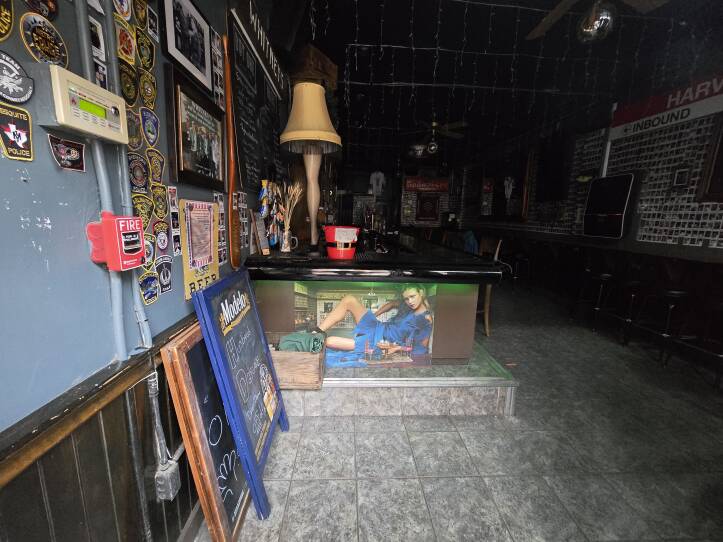
Harvard Square, moving forward
Framed photos still hang on the walls at Whitneys, which closed on New Years Eve. But just around the corner a large sign posted on the window of Dickson Bros., the vacant hardware store, announces a new tenant. White would not reveal the name, but said it is a national restaurant chain.
Business owners and neighbors have mixed feelings about the future of the square overall.
Stephen Zedros, longtime manager and owner of Brattle Flowers, says he is hopeful about changes. The florist says the 108-year-old business was given a new life after Chan and the Harvard Square Business Association, helped him find his current location after being forced to leave a prior storefront.
“It’s a perfect spot,’’ he said. “The person who set us up, Gerald Chan, was a big help.”
Rachel Kanter, owner of the recently opened Lovestruck Books, said she is excited about what comes next.
“There definitely are some other locally owned businesses, women-owned, popping up, like [the clothing store] Mint Julep across the street. We’ve got [lingerie shop] Forty Winks around the corner,’’ she said. “I think there is this kind of reemergence.”
Jillson said she is excited about the renovation of the iconic Harvard Square Kiosk, where the Out of Town News used to be located.
While many are optimistic about the shifts underway, others worry they may have to wait too long for the change they want to see.
Roughan, the restaurant owner across from the abandoned theater, doesn’t expect action anytime soon.
“My concern is that if the city does actually try and do something, that they will not follow through, that the person who owns this property can wait as long as he wants,’’ he said. “He can wait through any lengthy bureaucracy. He can wait because he can afford to wait.”
